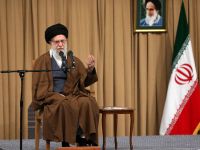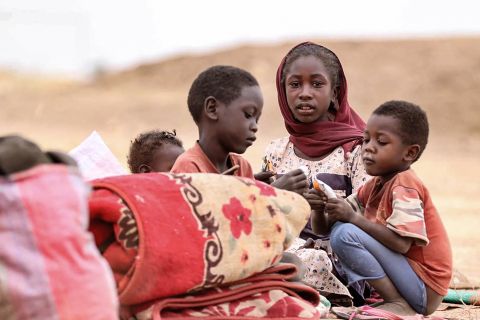The fate of a planned concert by Lebanese band Mashrou’ Leila was unclear as went to print Wednesday night.
The National News Agency reported that the band had said it was prepared to apologize for songs deemed “offensive to Christianity” and remove them from its set list, amid pressure from religious figures, but had released no official statement by press time.
The reported decision came after a meeting Wednesday in Jbeil with members of the band, organizers of the Byblos International Festival, where the group is set to perform on Aug. 9, and local Christian and Muslim religious officials.
The NNA said the band had admitted some of its songs contained content that could be considered offensive to Christian and Muslim religious values and symbols and was therefore prepared to apologize for them in a news conference.
The organizer of the festival, Latifee Lakkis, said that the band would hold a news conference to address concerns over the content that have caused a storm on social media in the last few days. She could neither confirm nor deny whether the band would apologize and remove certain tracks.
Earlier in the day, Mount Lebanon Public Prosecutor Ghada Aoun called members of the band in for questioning with State Security over alleged insults to Christianity but later released them without charge. The band was asked to remove posts related to Christianity, namely a meme of pop star Madonna’s face superimposed onto that of the Virgin Mary, from its official Facebook page.
Wednesday’s judicial action came after a lawyer filed a complaint Monday with the Mount Lebanon public prosecutor calling for the band to be investigated for insulting religion, inciting sectarianism and “promoting homosexuality.”
According to articles 473 and 474 of the Penal Code, insulting a religion or committing blasphemy is punishable by prison sentences of up to a year or three years, respectively.
The band’s concert was also opposed by a number of local church leaders and came under attack in a vicious social media campaign, with one user even threatening to stop the band’s performance “by force.”
{"preview_thumbnail":"https://cdn.flowplayer.com/6684a05f-6468-4ecd-87d5-a748773282a3/i/v-i-3…","video_id":"350c98f0-f33d-451b-bdc3-79b4bc5c9dfe","player_id":"8ca46225-42a2-4245-9c20-7850ae937431","provider":"flowplayer","video":"Houthis Claim Responsibility of Drone Attack on Saudi Airbase"}
The Maronite Archdiocese of Jbeil Monday had issued a statement calling on the concert to be canceled and for the band to be banned from “the land of holiness, civilization and history.”
Although the focus of protest on social media centered on alleged blasphemy, many comments were directed at the band’s lead singer, Hamed Sinno, who is openly gay and vocal about LGBTQ rights.
Singer and composer Marcel Khalife has been vocal in his support for the band, saying “Freedom for Mashrou’ Leila.” Khalife was charged with blasphemy in 1999 for including verses from the Quran in a song, but was later acquitted.
In a statement Tuesday, Amnesty International called on the authorities - the Interior Ministry in particular - to “take the necessary measures to ensure the band is protected from this spiteful campaign, and to ensure that the concert not be canceled.”
General Security, which falls under the Interior Ministry, has previously shut down activities to mark International Day against Homophobia, Transphobia and Biphobia, citing security concerns after threats from a radical Islamist group. A source at the Interior Ministry said Wednesday that the issue was not within the purview of the ministry, and that its duty was to “assure security” if the concert went ahead.
Wadih al-Asmar, president of the Lebanese Center for Human Rights, said the way the incident had been dealt with by the judicial authorities was “unfair.”
“It’s always the same patterns. The justice [system] is used for oppression and to attack freedom of expression.”
This article has been adapted from its original source.









